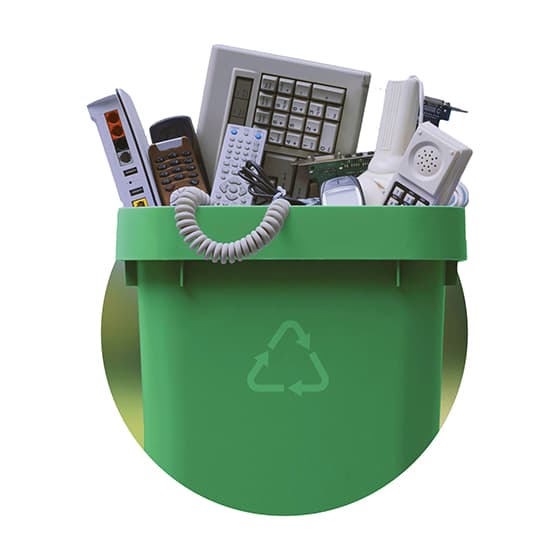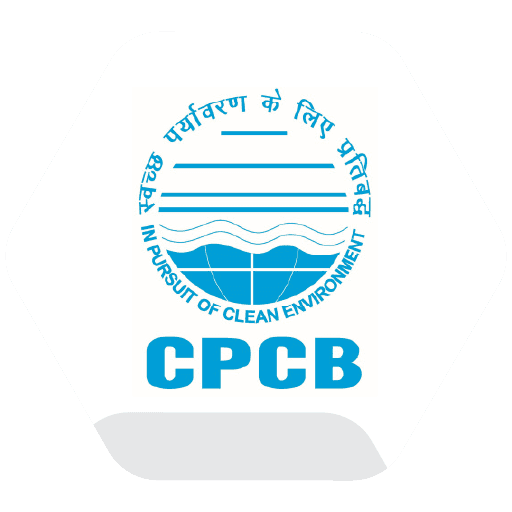
E-Waste Management
Helping producers fulfil their EPR obligations by managing the collection, recycling, and environmentally sound disposal of e-waste in full compliance with CPCB guidelines.


Electronic Waste Management
Introduction
Electronic waste, or e-waste, is one of the fastest-growing waste streams in the world. In India, the rapid increase in the use of electronic gadgets, home appliances, and IT equipment has led to a significant rise in discarded electronics.
Improper handling of e-waste can contaminate soil, water, and air, severely impacting human health and ecosystems. Burning or landfilling electronics releases hazardous chemicals, while informal dismantling poses serious health risks to workers. To combat this, India has introduced strict regulations to ensure safe and responsible e-waste management.
E-Waste (Management) Rules, 2022
The E-Waste (Management) Rules, 2022, notified by the Ministry of Environment, Forest and Climate Change (MoEFCC), came into effect on 1st April, 2023. These rules aim to strengthen the eco-friendly management of electronic waste in India by placing responsibility on producers and other stakeholders to ensure proper collection, recycling, and disposal of e-waste.
Environmental Impact
E-waste contamination affects soil, water, and air quality, creating long-term environmental challenges that require immediate attention.
Health Risks
Improper e-waste handling exposes workers and communities to hazardous chemicals, causing serious health complications.
Effective management of electronic waste is crucial for sustainable development and environmental protection in India.
EPR in E-Waste Compliance
What is EPR in E-Waste Compliance?
EPR (Extended Producer Responsibility) is a policy approach under which producers are held accountable for the entire lifecycle of their electronic products, including take-back, recycling, and final disposal.
EPR certificates, issued by the Central Pollution Control Board (CPCB), legally authorise producers to operate in compliance with e-waste rules.
Who Must Obtain EPR Registration?
EPR registration is MANDATORY for the following entities:
Manufacturers
Entities manufacturing electronic products for sale in India.
Producers
Brands (including importers) selling electronics under their own name.
Refurbishers
Those involved in repairing or reassembling used electronics.
Recyclers
Individuals or companies engaged in processing e-waste into raw materials.
Validity
EPR Authorisation is valid for 5 years and can be renewed for an additional 5 years.
Key Benefits of EPR Compliance
Environmental Protection
Ensures responsible disposal and recycling
Legal Compliance
Meets regulatory requirements
Circular Economy
Promotes sustainable business practices
EPR compliance is essential for creating a sustainable electronics ecosystem in India.
EEE Codes in E-Waste EPR
What are EEE Codes in E-Waste EPR?
In the context of E-Waste EPR, EEE codes refer to designated identifiers assigned to various categories of Electrical and Electronic Equipment (EEE).
Equipment Coverage
Cover equipment, components, consumables, and spare parts
Waste Calculation
Help in calculating the estimated e-waste generation
Lifespan Assignment
Assign an average lifespan to each equipment category
Recycling Targets
Aid in determining the recycling targets under EPR
Total EEE Codes
As of now, there are 134 EEE codes defined under India's E-Waste (Management) framework.
Timeline for Obtaining an EPR Certificate
Standard Timeline
Within 120 days from submission of a complete application
Review Timeline
CPCB may respond within 25 days if there are discrepancies or missing documents
Pro Tip
Submitting a complete and accurate application ensures faster processing and avoids unnecessary delays.
Key Takeaways
134 EEE Codes
Comprehensive categorization system
120 Days Processing
Standard timeline for EPR certificates
Complete Applications
Key to faster processing
Understanding EEE codes is crucial for accurate EPR compliance and effective e-waste management.
VINCULAR as a PRO
Producer Responsibility Organisation
What is a Producer Responsibility Organisation (PRO)?
Under the E-Waste Management Rules, a Producer Responsibility Organisation (PRO) is a licensed body authorised by the CPCB to support producers in meeting their EPR obligations, including collection, recycling, and environmentally safe disposal of e-waste.
VINCULAR - Your Trusted PRO Partner
VINCULAR is a CPCB-registered Producer Responsibility Organisation (PRO). We act on behalf of producers to manage end-of-life electronics in a legally compliant and environmentally responsible manner.
Our PRO Services Include:
Collection and Channelisation
Collection and channelisation of e-waste
Comprehensive e-waste collection network with proper channelisation to authorized facilities
Awareness Programs
Consumer and bulk-consumer awareness programs
Educational initiatives to promote responsible e-waste disposal practices
Traceable Recycling
Ensuring traceable, formal recycling and dismantling processes
Complete transparency in recycling processes with full traceability documentation
Documentation Support
Liaising with certified recyclers and CPCB for smooth documentation
Expert handling of regulatory compliance and documentation requirements
Why Choose VINCULAR as Your PRO?
CPCB Registered
Officially licensed and authorized PRO
Environmental Focus
Committed to sustainable practices
Full Compliance
Ensures complete regulatory adherence
Ready to Partner with VINCULAR?
Let us handle your EPR obligations while you focus on your core business.
VINCULAR - Your trusted partner in responsible e-waste management and EPR compliance.